Election: Are jury compositions fair and representative? Circuit Judge candidates weigh in
Every Jefferson County judicial seat will be on the ballot this November. Every voter will vote for a judge in each division. If you missed the Judicial Forum that featured our Circuit Court Candidates as well as the Court of Appeals and the Kentucky Supreme Court you can watch it here.
The Courier Journal, together with the League of Women Voters of Louisville and the Louisville Bar Association identified the following questions for Circuit Court Judge candidates with the intention of helping voters in the voting booth. We asked for answers in 200 words or fewer.
Are the composition of juries fair and reflect society at large? How could this be improved?
Division 4
Ebert Haegele
"Our jury panels should reflect the community they are drawn from. And while there are laws in place to ensure the selection of juries is fair and not based on racial bias, those laws are often not enough and we must do more. Access to our courts is often limited only by individuals' ability to get to court. For those of lesser means, missing a day at work, finding a ride to the courthouse, obtaining child care for several days or weeks of jury duty is difficult, if not impossible. We can change that by increasing what we pay jurors and providing job protection for time spent on jury duty. When we make our courts more accessible, we make them a better representation of our community."
Julie Kaelin
"The composition of juries is not what I would consider fair, and juries do not reflect society at large. I see it nearly every time I empanel a jury of mostly white people. The first reason this is true is historic: we live in a country that has for centuries stripped civil rights away from marginalized people in a calculated fashion, particularly people of color. We continue this practice, rooted in racism, by not allowing those previously convicted of a felony to serve on juries (or vote) even after they have served their time and even after knowing that people of color are disproportionately charged and sentenced.
"In Kentucky alone this excludes almost 200,000 jurors. Juries will not reflect society at large until we correct this problem. This is a Constitutional Amendment we really need. Additionally, we should expand the sources from where we pull jurors. We should consider using tax records and state IDs as well. We should also do a better job of following up with those called for duty who do not appear. And we should also drastically increase juror pay so that jurors do not suffer financial hardship and to incentivize serving as a juror."
Division 5
Tracy Evette Davis
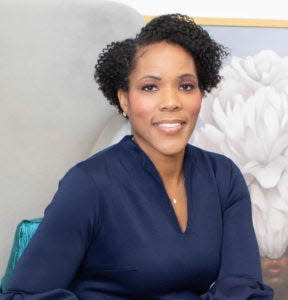
"The struggle to have a jury that is a true composition of our society at large continues today. As attorneys we strive to assure the jury is made of people as similarly situated to our clients as possible so he or she gets a jury of their peers. More often than not that is impossible considering the jury pool. Currently the Administrative Office of the Courts creates a list of prospective jurors that includes all people filing a Kentucky resident individual tax return, registered voters and licensed drivers over the age of 18. Then they must be a US citizen, speak and understand English, can’t have a felony conviction without it being pardoned or having their civil rights restored, can’t be under indictment, and has not served as a juror in the last 24 months. These requirements excludes a large amount of the community and many marginalized people who may appear in court. This is definitely does not result in a jury that reflects our community at large."
Mary M. Shaw
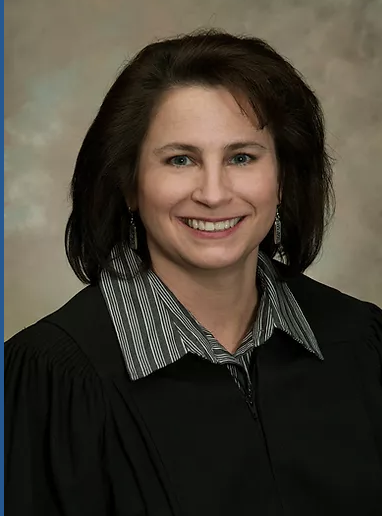
"It is the state legislature that determines the method used to choose potential jurors. A different method or perhaps utilizing two or three different methods to be more inclusive would be extremely helpful in making sure that juries reflect society at large."
Division 7
Melissa Logan Bellows
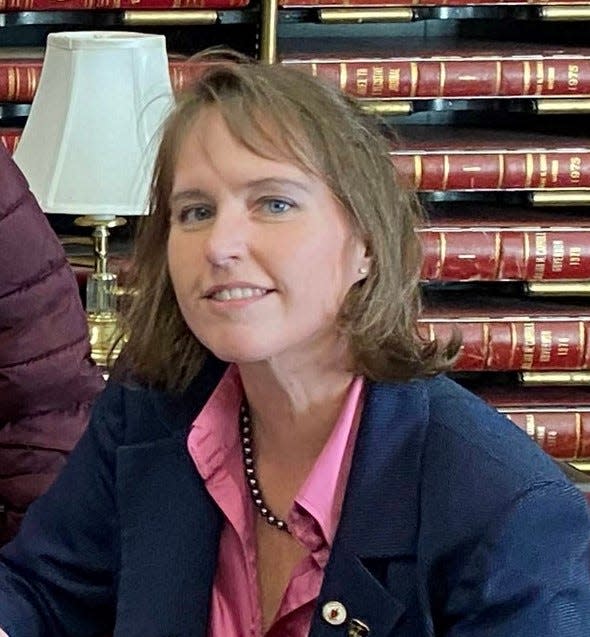
"I believe the process of jury selection can actually be a fair process as most everyone can be called to serve on a jury, regardless of race, ethnicity, sexual orientation, etc. That being said, the current system of using drivers license registration as a source of jurors can disenfranchise those who do not currently have a valid driver's license. That group is most certainly not represented in the jury pool, and tend to come from a depressed socio-economic part of our community. As the jury pooling fails to include this segment of our population then one could certainly argue that the composition of juries is less than fair and fails to reflect our society at large. Perhaps one easy solution to this dilemma is to also choose potential jurors from those who hold a free state I.D. This would ensure that all of our community may have an opportunity to serve on our juries- a vital role in our judicial system."
Theodore “Ted” Shouse

"Historically in Jefferson County the composition of the jury pool has not reflected our community. Both racial and economic diversity have been lacking. Four years ago, I represented a client facing the death penalty. Racial and economic diversity in the jury panel was critical to ensuring a fair trial. At that time, people who did not respond to a jury summons in Jefferson County faced no consequences. No follow-up communication from the court was required.
"I researched the administrative regulations of the court and discovered that a second letter could be sent to non-respondents, reminding them of their responsibility. I asked the court to send this second letter in my case and the court granted my request. The resulting jury panel was far more diverse and more reflective of our community. It is now standard procedure to send jurors reminder letters. Simple solutions like this can increase public confidence that fair justice is being administered in their name."
Division 9
Sarah Clay
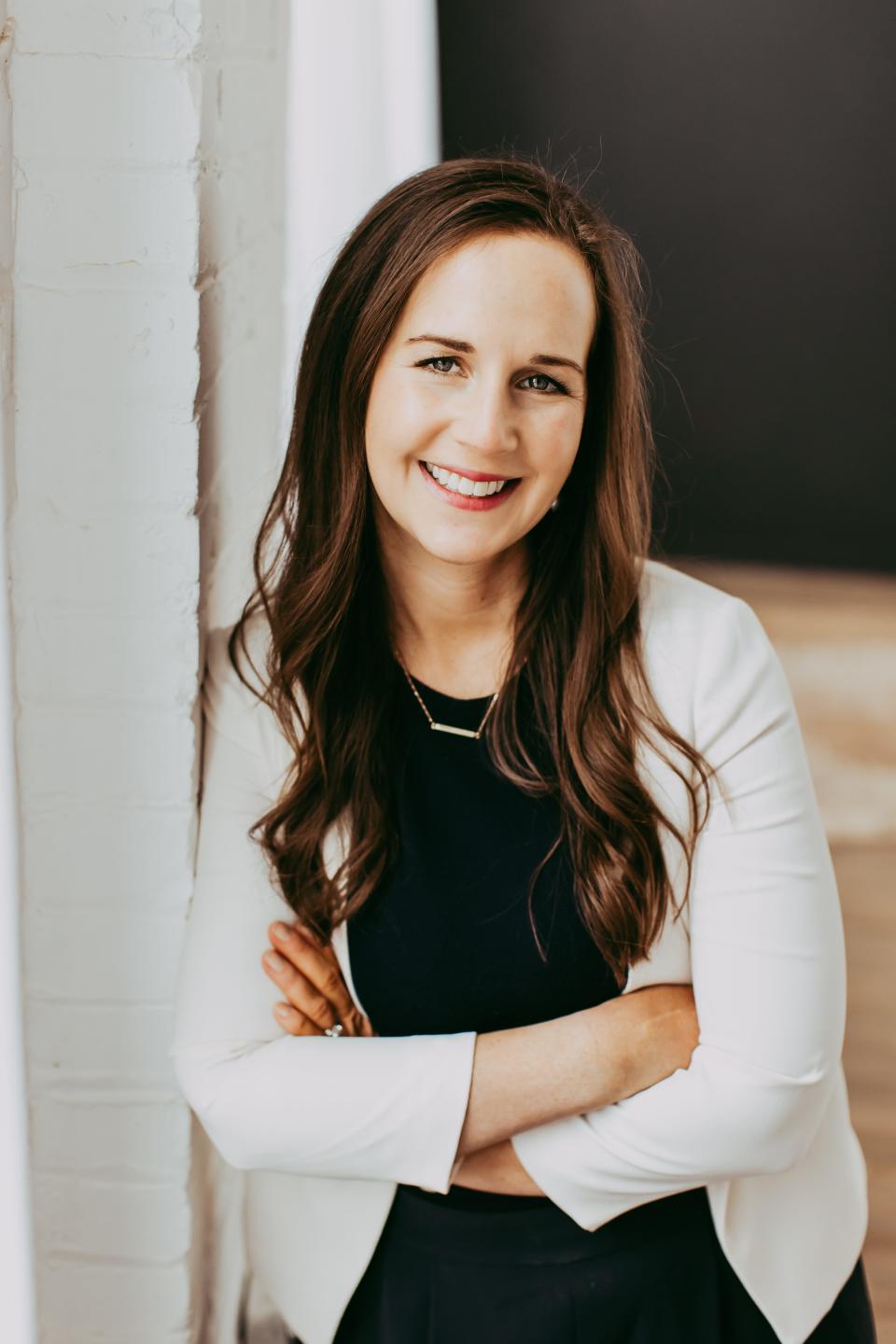
"I have tried many cases as an attorney, so I know first-hand that juries do not always reflect a fair cross section of the community. However, we have learned that simply sending out reminder letters to those summonsed for jury duty results in more diverse jury pools. As a judge, I would advocate for a local rule change requiring those letters to be sent out to every jury pool."
Nichole Taylor Compton

"Absolutely not!
"Having a “jury of one’s peers” for trial is a fundamental concept everyone desires, but not all are afforded.
"Louisville, like our great nation, is comprised of rich cultures and diverse populations. Ensuring juries reflective of the same is a longstanding problem, requiring drastic changes and consistently concerted efforts.
"As a triple minority attorney representing primarily working-class Kentuckians, my firsthand knowledge incorporates a statistics-based perspective on the complexities and ramifications of such disparities.
"But I never complain without seeking solutions. That’s why I have volunteered on the Chief Justice’s Racial Fairness Commission, tasked with researching data and offering strategies to resolve issues including lack of juror diversity.
"But recognizing the problem exists is just the beginning. We must improve juror selection methods, update rosters, make participation more feasible, and the obvious. Increase juror pay!
"Make serving as a juror practical, by incorporating technologies to allow virtual appearances; implementing accommodations for disabled individuals and those with limited means or transportation; educating everyone regarding how the process works (and doesn’t), addressing misconceptions; revamping processes, eliminating individual biases; enabling all to participate without jobs being jeopardized, necessary income lost, and child care challenges unaddressed; and offering employer incentives, particularly for small businesses."
Division 10
Dorislee Gilbert
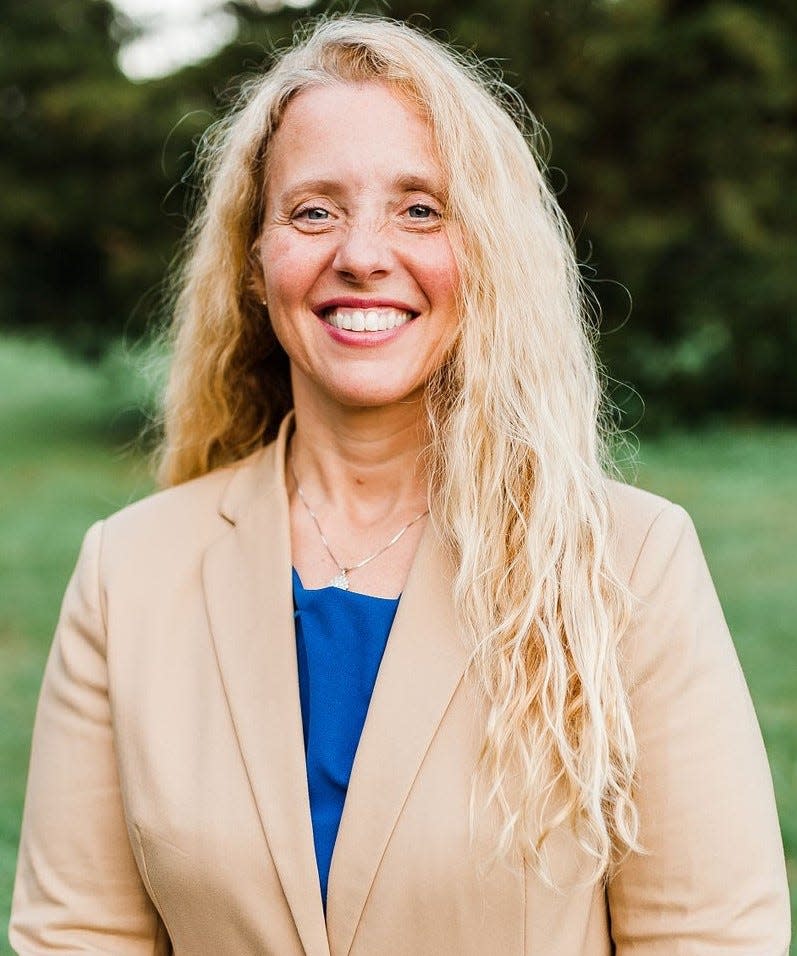
"Overall, juries do not reflect society at large and cases are not decided by representative groups of society. Juries would be more representative if some of the burdens of jury service were alleviated. For example, increased juror pay would be a significant help.
"For jurors who have to miss work or find additional child care or different transportation in order to serve, the low pay offered can be a hindrance. We also improve juror representation by electing qualified, experienced judges. I have extensive jury trial experience, ranging from misdemeanors to capital murder cases, and I have litigated jury selection issues in the trial and appellate courts. I have the experience and knowledge to recognize when a juror’s opinions or attitudes require that they be excluded from a case for the parties to have a fair trial, while also ensuring that jurors are not excluded because of improper reasons, like race or gender."
Patricia "Tish" Morris
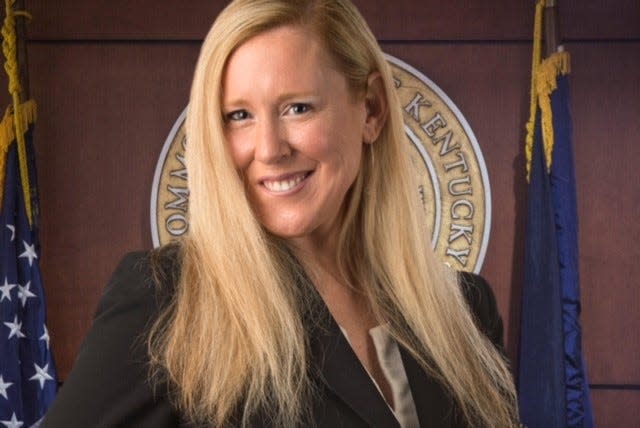
"Although Batson v. Kentucky was the landmark case in order to cure the inequity of a person being tried by a jury not compromised of one's peers, over the years, due to many issues with jury service (COVID only spotlighting the inequities) the ability of get a fair and impartial jury is difficult. Our system, not merely the Judge, must enable people to serve as jurors and make it easier to participate. They are the backbone of the system and without them it fails. Jury service is one of the most important of all civic duties. The system needs to be examined and jurors must be fairly compensated, receive adequate notice and have the technology to make the job easier."
What methods would you use to deal with difficult litigants and lawyers?
Division 4
Ebert Haegele
"Part of being a judge is ensuring the proper deference and respect is shown to the court, however, a judge cannot take whatever goes on in court personally. In my career, I’ve disagreed with judges and opposing counsel, but I have always done so while being respectful and deferential. As judge I will expect the same of those who appear before me, employing methods which maintain the dignity of the proceedings and the public’s trust in our courts."
Julie Kaelin
"This is an issue I have dealt with many times. As a Public Defender and in private practice, I represented some very difficult clients. And yet I had to find a way to gain their trust, and I did. Perhaps more importantly, I am the only candidate in this race who has experience on the bench and has dealt with this issue from that position. I have had trials with “sovereign citizens” and others who insist on representing themselves. In my view, it is part of a Judge's job to ensure that all parties are adequately represented. This does not mean perfection. But when you have been around as long as I have, you just get a sense for these things and know when it is time to step in. I even went viral once when dealing with a difficult lawyer!
Additionally, when I was an attorney, I was what is known as a "Strike Force" lawyer, which sounds a bit cooler than it is. I went into courts and represented lawyers who were facing contempt or sanctions from a Judge. Every person and situation is unique, but because of my experience, I can handle anything that comes our way."
Division 5
Tracy Evette Davis
"It takes a blend of courtesy accompanied by firmness. I will always require respect for the court and the judicial process in the courtroom. I will stay focused on the issue or issues in dispute not on the particular litigant or lawyer. As a mediator I always try to find the common ground and identify where there is mutual agreement or understanding concerning an issue to establish progress in reaching resolution. Everyone is human and may be having struggles that none is aware. Civility goes a long way as does a good temperament. The last resort would be to resort to discipline and that is only in instances where the decorum that is required in court is not adhered to after walking through the preliminary steps to ease whatever conflict may exist."
Mary M. Shaw
"After almost 16 years on the bench, I have found that litigants and attorneys are, for the most part, pleasant to work with in the courtroom. When litigants or attorneys do become upset, I always remain calm and try to determine what is the issue causing the problem. Usually with litigants, they just want to have their say and be heard - so I listen. With attorneys, I make sure they argue to the court and not to each other - so it does not become personal."
Division 7
Melissa Logan Bellows
"The issue of difficult litigants and lawyers is one faced by Judges at certain times throughout their careers. The initial step is to bring the lawyer up to the bench and discuss it discreetly while the microphone is turned off. If the behavior continues then the Judge has several courses of action that may be implemented when appropriate and using the relevant rules in place. Each attorney of the KBA is sworn to uphold the rules of Ethics. For instance, when prosecutorial misconduct is apparent, such as overcharging, etc., then the Judge is compelled to investigate further. Depending upon the stage of the trial, it might require a probable cause hearing to establish a basis for amending or dismissing the charge. Prosecutorial misconduct must be addressed by the Judge, applying the applicable rules where appropriate. Any violation of this must be addressed where appropriate, as Judges are the arbiters, and hold the responsibility to maintain an ethical court."
Theodore “Ted” Shouse
"Patience and equanimity are key. There are jobs where one simply does not get to lose one's temper: schoolteacher, police officer and judge are three such jobs. It is important for judges to remember what it was like to actually practice law, to have a client whose future is at stake. Calm empathy can go a long way to defusing a volatile situation.
"Some years ago, I was in a very contentious trial. I objected to something the prosecutor had done. After sustaining my objection, the judge ordered me to stand still and simply breathe for 45 seconds. That 45 seconds allowed all of us, including me, to calm down before returning to work. The judge created a space for all of us to compose ourselves and to refocus on the work at hand. That's the kind of judge I hope to be."
Division 9
Sarah Clay
"As a judge, I will have an obligation to maintain order and decorum in my courtroom. But I will also be obligated to be patient, dignified, and courteous to everyone who appears before me. During my time as a public defender and in my private practice, I have dealt with difficult clients, attorneys and parties in cases. I have often taken on challenging cases that other attorneys have refused to take. My experience in those cases has been invaluable, because it has helped me develop the ability to be patient and attentive during volatile and chaotic situations, while also being stern and direct. I will bring that same ability to the bench."
Nichole Taylor Compton
"Simply stated: I treat people how I would want my loved ones treated, because regardless of anything, they are someone’s loved one!
"As a mother, grandmother, business owner, manager, mentor to at-risk youth, former JCPS substitute teacher, volunteer with recovering addicts and individuals considered 'undesirables,' I treat everyone with dignity while creating a safe and productive work environment.
"My love for the law, commitment to justice and desire to restore faith in our legal system stem from caring about people. Like court cases, no two parties are alike. Everyone must be treated equally and equitably with respect. The judge sets the tone for the courtroom.
"Respect for judges is given the position, but respect as a person is earned. Voters elect judges, expecting firmness yet fairness. This should include treating people appropriately, even when they're difficult. That’s lawyer and litigants alike.
"A former judicial opponent jailed an intimidated domestic violence victim. Another judge released her later, apologizing for such treatment. This should never occur! Employing customer service, drawing on 'real life' experience, commonsense and a care for the community we’re elected to serve is crucial! I'm committed to continuing being that kind of diligent servant leader for Jefferson County."
Division 10
Dorislee Gilbert
"I will first acknowledge that appearing in court is often related to trauma and that court appearances can retrigger trauma. Thus, I will allow a certain amount of grace for litigants’ emotions and trauma responses so long as they do not overtake the fairness of the proceedings.
"Additionally, in generally dealing with difficult litigants and lawyers, I will first authoritatively remind them of the behavior that is expected in the courtroom. Depending on the circumstances, this could be a semi-private admonition at the bench or an admonition in open court. If the behavior continues or is dangerous, I may have individuals removed from the courtroom, halt proceedings until emotions have cooled down, or hold contempt of court proceedings—always being especially mindful of the constitutional rights of defendants and victims in criminal cases. Any time a lawyer’s difficult behavior amounts to an ethics violation, I will make a required report to the bar association."
Patricia "Tish" Morris
"Initially, any Judge would be expected to think quickly and discern the issue at hand. A Judge must expect that litigants, when dealing with issues regarding their lives and their liberty, will be frustrated and even volatile with rulings and the frustration of dealing with the situation they find themselves in. It should be calmly and swiftly addressed with reason and compassion while ensuring safety. The Sheriff's department is, of course, there to aid in any extreme situations. As far as attorneys, who are and should be held to a higher standard, a Judge MUST address the matter at issue while also trying to maintain dignity and respect for the profession and all involved. Civility is an important aspect of the judicial system and it has been forgotten by many in recent years. Attorneys must respect each other and the bench and we should not have to tolerate childish and disrespectful behavior by lawyers in the courtroom."
More about Circuit Court
Circuit Court handles capital offenses and all other felonies as well as civil matters of cases with more than $5,000.00 in dispute. Judges in this court also hear land dispute cases and contested probate cases. Defendants in Circuit Court are facing more serious charges and longer sentences. Voters should know how each Circuit Court Judge candidate recognizes the racial disparities in the justice system and how they intend to protect the dignity of all individuals who land in their court.
More Q&As with Jefferson County Judicial Candidates:
District Court Candidates
Do the judicial candidates for District Court support bail reform?
What District Court Judge candidates say about protest charges
Circuit Court Candidates
Signing warrants? Circuit Judge candidates weigh in on accuracy and safety
What Circuit Judge candidates say about racial disparities in the courtroom
Court of Appeals Candidates
This article originally appeared on Louisville Courier Journal: Kentucky Judge Elections: Are selected juries fair and representative?

